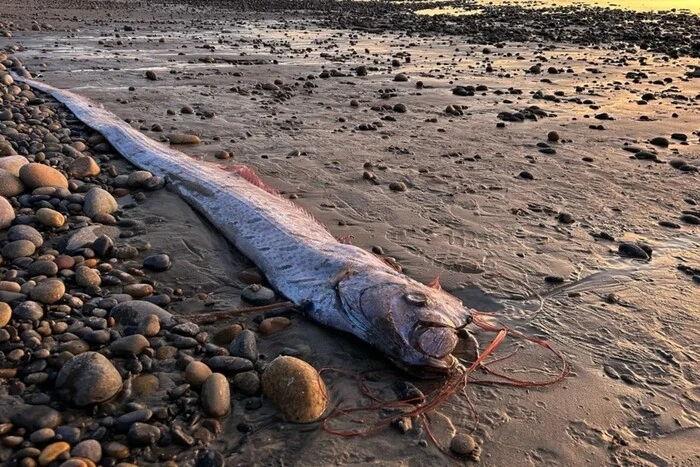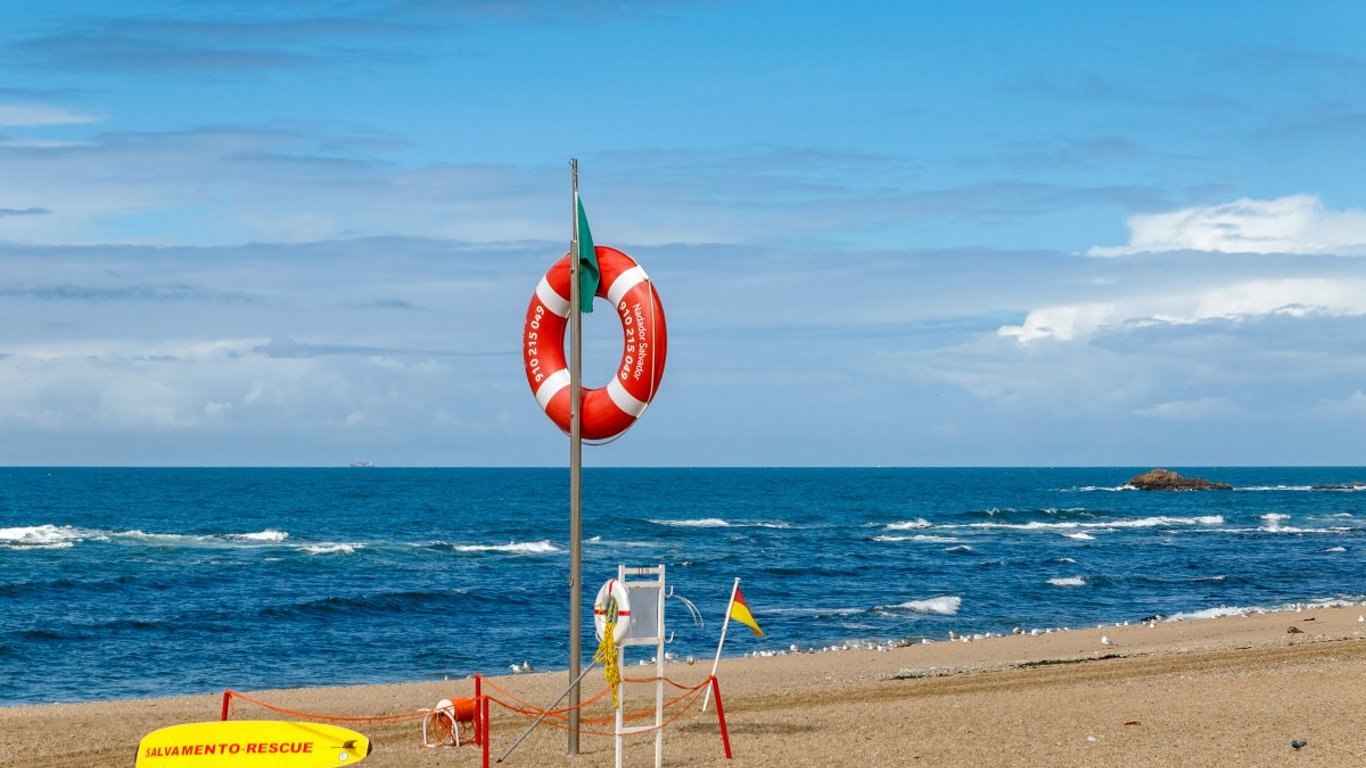A 'Doomsday Fish' Found Off the US Coast: It Is Considered an Omen of Calamities.


A Three-Meter 'Doomsday Fish' Found on Grandview Beach
On the shore of Grandview Beach, a nearly three-meter 'Doomsday fish' was found. It was taken by the National Oceanic and Atmospheric Administration (NOAA) for further study. This was reported by Alison Lafehr from the Scripps Institution of Oceanography at the University of California, San Diego, according to CNN.
This species was first found this year in La Jolla Bay. Another fish was discovered in September at Huntington Beach. The reasons for the appearance and death of these fish remain unknown. Among the possible factors, scientists point to changes in ocean conditions, red tides, and Santa Ana winds.
This unusual phenomenon is considered by experts. Since 1901, the ribbonfish has been documented only 20 times, said Ben Frable, a fish expert from the Scripps Institution of Oceanography, in a statement in August. Changes in the ocean may be the reason these unique creatures are appearing more frequently on the surface.
According to Japanese myths, the 'Doomsday fish' in shallow water is a harbinger of earthquakes and tsunamis, writes Atlas Obscura. In 2010, a year before the most powerful earthquake in Japan's history, a dozen representatives of this species were found along the country's coastline. However, there is also an explanation – tectonic activity before an earthquake 'ejects' these fish, 'forcing' them to wash ashore, writes Natural World Facts.
At the same Time, a 2019 study found no connection between the appearance of the fish and earthquakes.
Meanwhile, on El Sablon beach in the small town of Llanes (Spain), a giant squid measuring 10 meters in length was discovered. The creature was found on October 11 and caused excitement among local scientists. Architeuthis Dux – more commonly known as the 'giant squid' – is very difficult to observe in its natural habitat as it lives in the depths of the oceans. It can reach lengths of up to 17 meters and weigh 300 kg – it is one of the largest squid species on the planet. A total of 21 specimens have been recorded, most of which live in the Cantabrian Sea.
Read also
- 19 solar flares observed — magnetic storm forecast for today
- The recreated mosaic by Alla Horska will be shown in London
- Ocean instead of a continent — what changes humanity should prepare for
- Russia struck the TCC in Kharkiv and Zaporizhzhia
- Legion 'Freedom of Russia' captured a Nigerian mercenary
- Russia attacked Odesa with drones: a residential building is on fire









